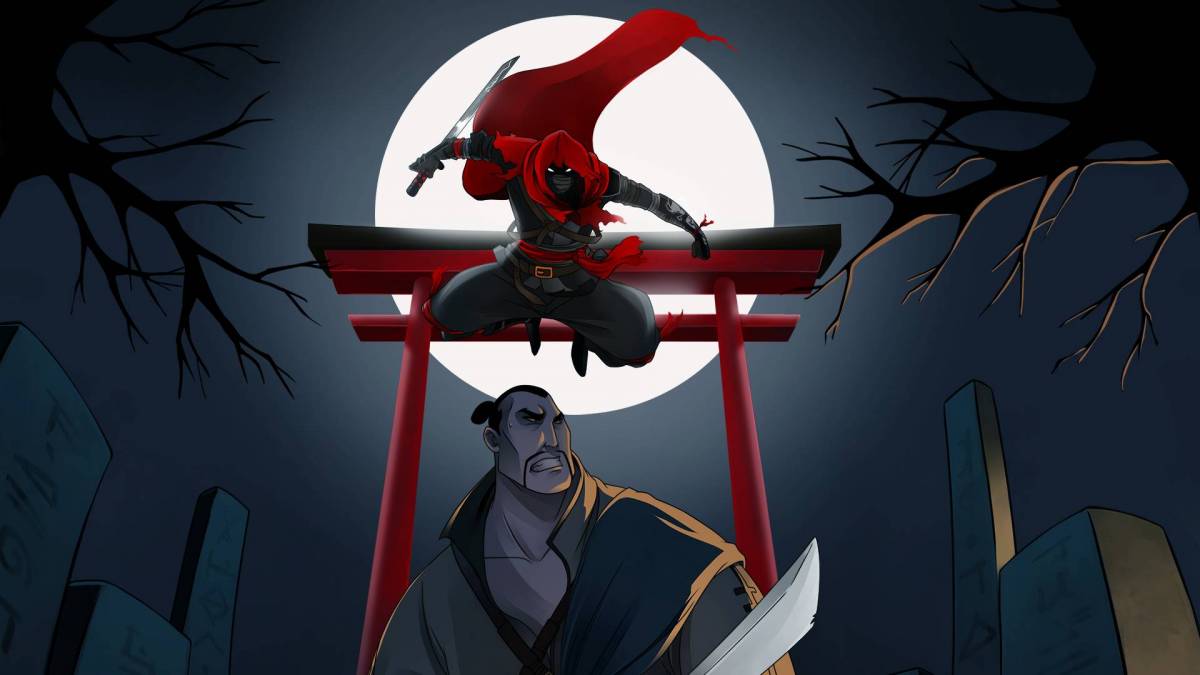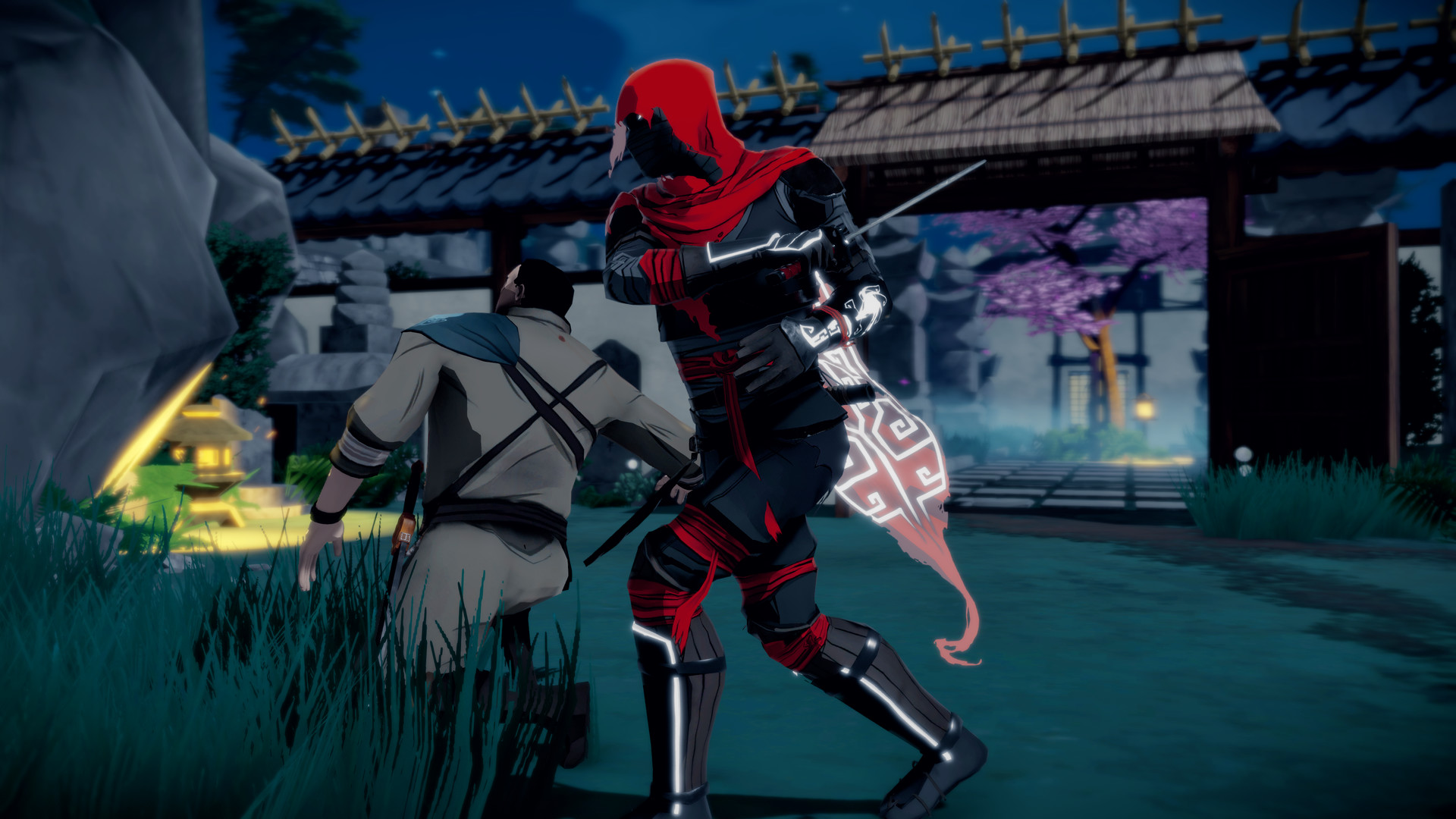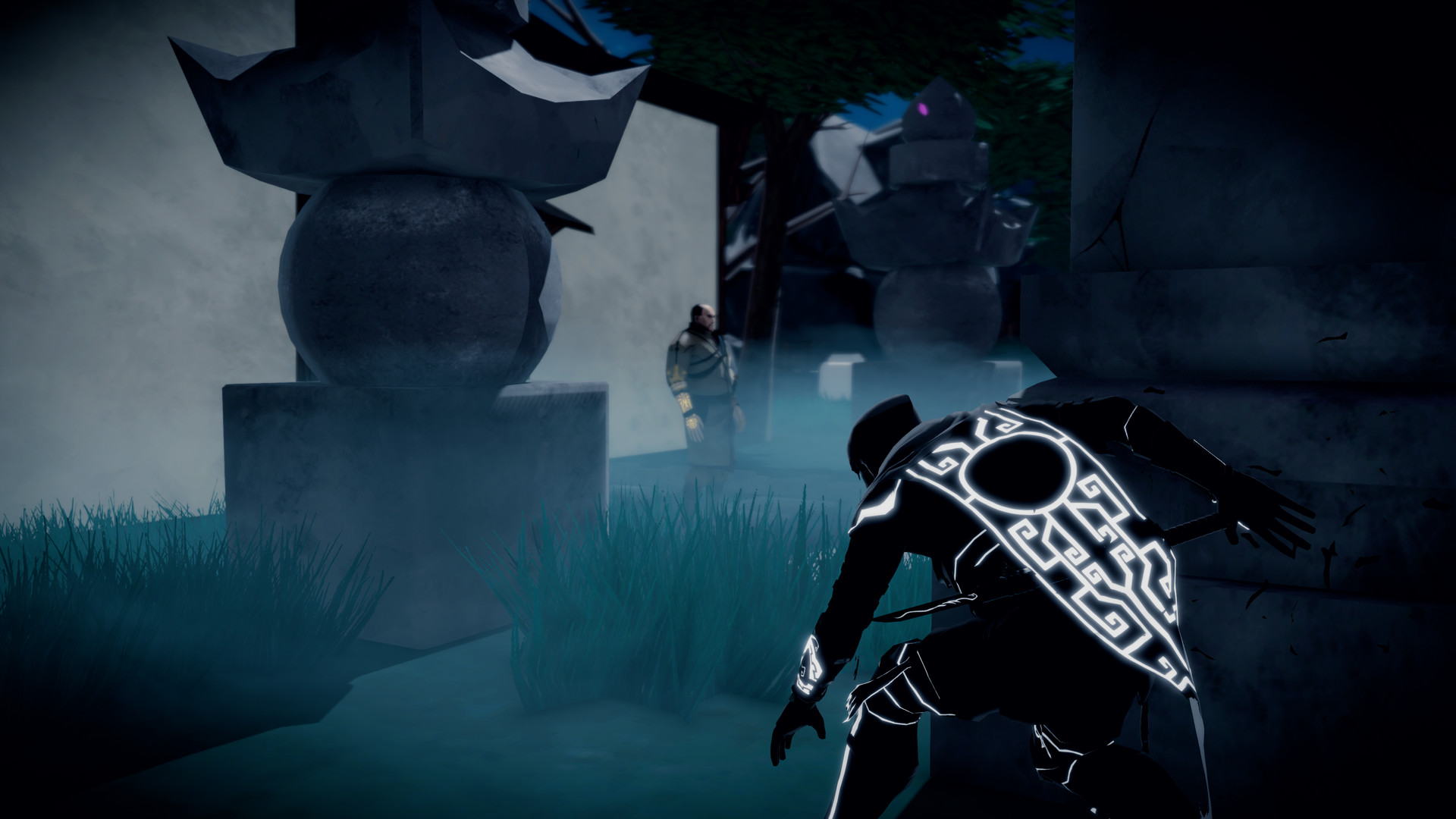The action adventure stealth game Aragami, developed by Lince Works, was released as an overall solid experience, especially on the PC. The game comes off more as an indie title that focuses more on stealth than action. Now we have the release of Aragami: Shadow Edition. Combined with the original Aragami, its post launch DLC, and the new Nightfall expansion, is the total package worth it?
Aragami: Shadow Edition
Publisher: Lince Works
Developer: Lince Works
Platform: PC, PS4 (Reviewed), Xbox One
Release Date: June 5th, 2018
Players: 1-2 Co-op
Price: $24.99
In Aragami, a girl named Yamiko summons an undead assassin with the ability to control shadows. She is held captive by the Kaiho, a light-aligned clan who have conquered the land from the shadow-aligned Nisshoku, who are led by the Shadow Empress.
Yamiko makes a request to the newly summoned Aragami: collect six talismans to free her before the sun rises. When daylight comes, the Aragami will die again from the sunlight, and hope for Yamiko is lost.
The expansion, Nightfall, takes place before the first game. The prequel of sorts features both Hyo and Shinobu, two assassins who set out to find a individual simply known as the Alchemist. Nightfall mostly is based around conversations between the two, and is far less interesting.
They have to work together in order to complete their mission and piece together the puzzles of their story, while battling the invading Kaiho. Overall it adds more exposition to the first installment and helps to clarify questions while flushing out the lore of the game.
The story works and is only slightly interesting at point some points, failing at others but Nightfall lacks compared to the original game. The original Aragami had lots of mysterious aspects, coupled with flashbacks relating to what has happened to the Aragami and Yamiko.
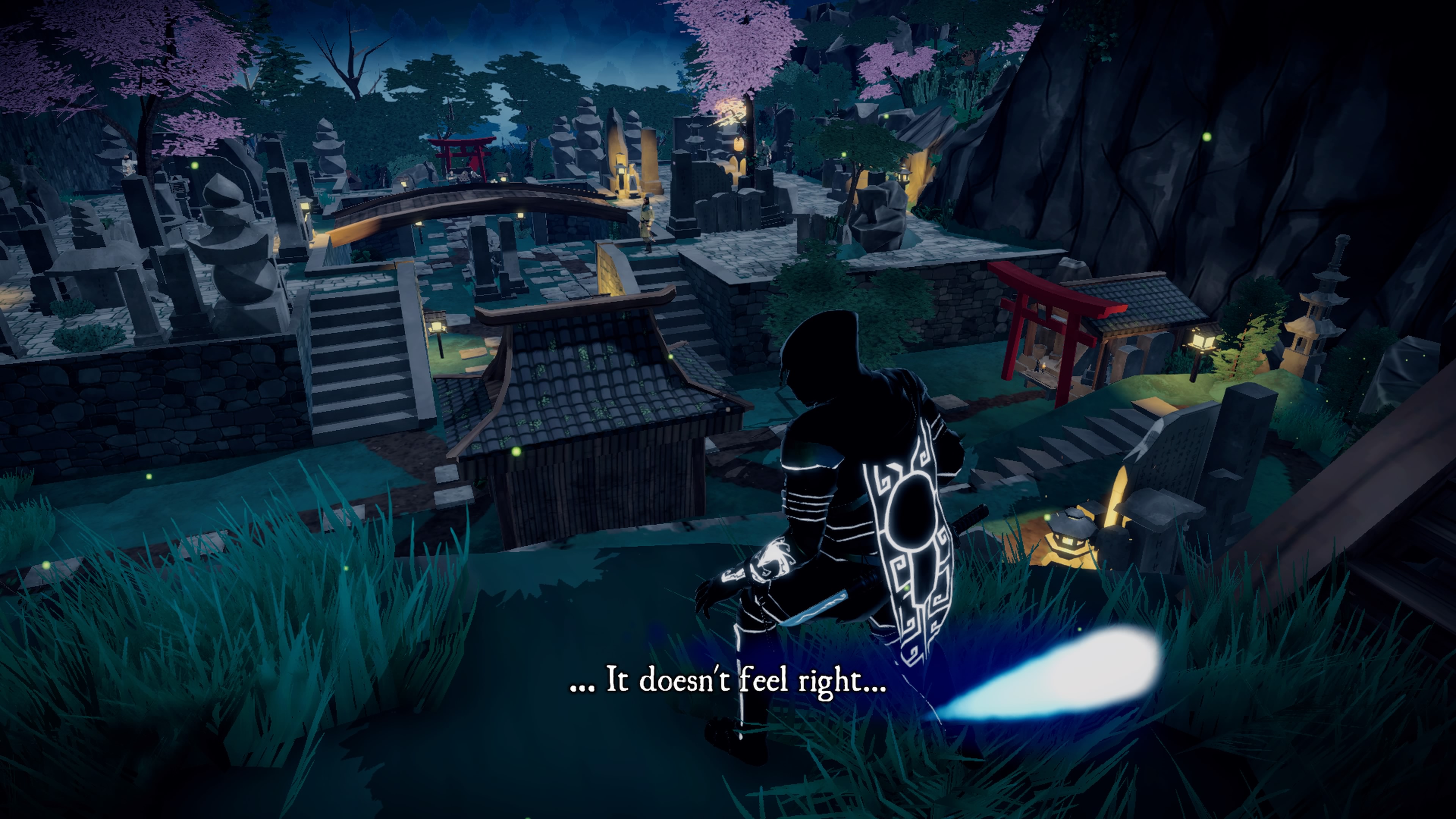
Even though Aragami’s plot was not a strong driving force of playing the game, Nightfall’s interest happens more to the end of the game when it ties the two games together. As a whole package the story is nothing anyone will be raving about and is not very memorable.
Visually the game looks good but at the same time having quirks. The art style of the backgrounds looks subtle, like a hand painted tapestry, while character models are smoothly cel-shaded.
While simplistic, it really helps to emphasize the major aspect of the gameplay mechanics – lights and shadows. Soft glows from objects illuminate areas nicely and add more to the visual flare of the game. While it looked nice, something still felt a bit off.
As I played the initial flare began to fade during closer inspection, like textures seeming duller in the environments. It becomes more noticeable in lighter areas and more apparent in nightfall. Still, I only really noticed it when I stopped and paid closer attention.
Animations for characters come off as very stiff in some cases. While Nightfall has more personal interactions, the cutscene animations became disruptive and silly looking occasionally. There’s also no mouth animations during conversations, overall they became the part I liked the least.
The original Aragami release had a lot of bugs. There were also framerate issues on consoles that would cause it to dip down noticeably. Thankfully, I did not experience a single bug that broke my experience during my time playing.
I did have a couple of weird moments where I got stuck in an area, however, but was able to teleport out. Also, I once had a small framerate dip when loading into a new zone. I sometimes, if not rarely experienced slowdown when teleporting from shadow to shadow.
These framerate dips did not take much away from the gameplay experience. Still, on PlayStation 4, the game wasn’t running at a 100 percent stable 60fps, and mostly sat above 30 fps. Despite this, the game still ran pretty smooth.
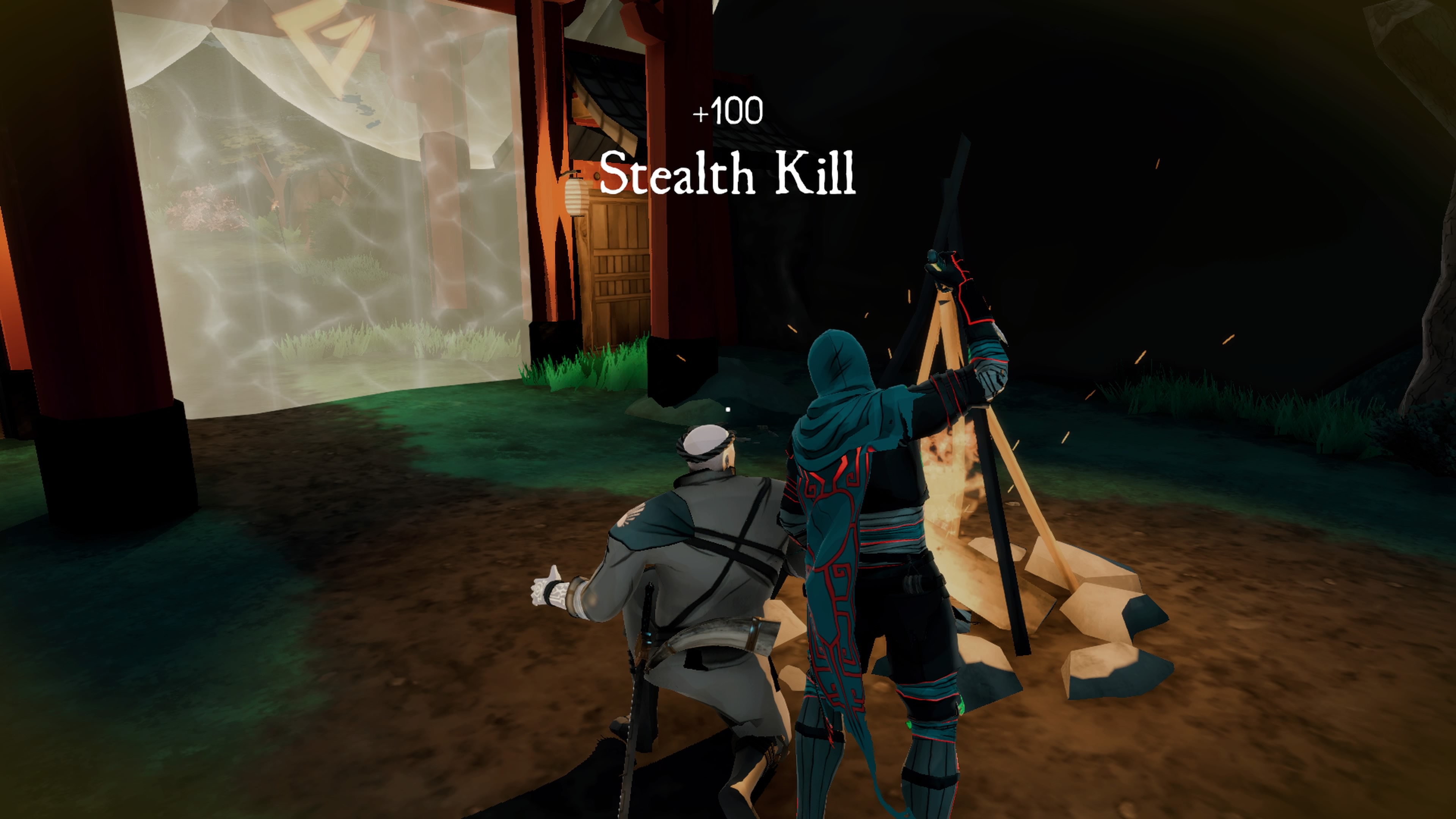
The audio of Aragami is minimal, which overall is a good thing. As the game avoids deafening sound effects or music, it brings more attention to what’s going on in the environment and ultimately becomes audio notifications of what’s going on around you.
I cannot help but stress how many times I would take a moment of relief to hear a couple of enemies talking to one another so I knew that an area would be best avoided, as two if not more enemies were in that one central area.
The composing duo of Elvira Bjorkman and Nicklas Hjertberg, also known as Two Feathers, composed the original music score and returned to compose Nightfall’s soundtrack. The strong Asian-inspired music from the first game returns, but with new tracks.
The soundtrack boldly sets the tone of the game and each area or event that happens during the story. Considering this experience is intensely atmospheric, it strongly helps to elevate the experience of the game without being overbearing.
Reminiscent of other hardcore stealth-based games such as Tenchu, being patient and keeping aware of your surroundings is key. Using shadows to regenerate your power and hiding from enemies keeps a tense feeling.
Players of the original game will find themselves in vast and wide-open maps within the Nightfall expansion that divert from the puzzle like small areas that they are used to in the original. Likewise, the game still strives on punishing the players mistakes with one hit deaths.
Unlike the original game, Nightfall spoils the player by having all abilities unlocked right at the start. These range between warping from place to place, creating shadows, making distracting noises, or utilizing a stealth kill that hides a body.
Every utility has its use and utilizing each one effectively ultimately makes the game far more enjoyable to the player. New abilities have been added as well, such as smoke bombs.
I ultimately found myself mostly using the kunai which allows for a silent range takedown, with a follow-up that allows it to explode and take out more enemies or create a distraction.
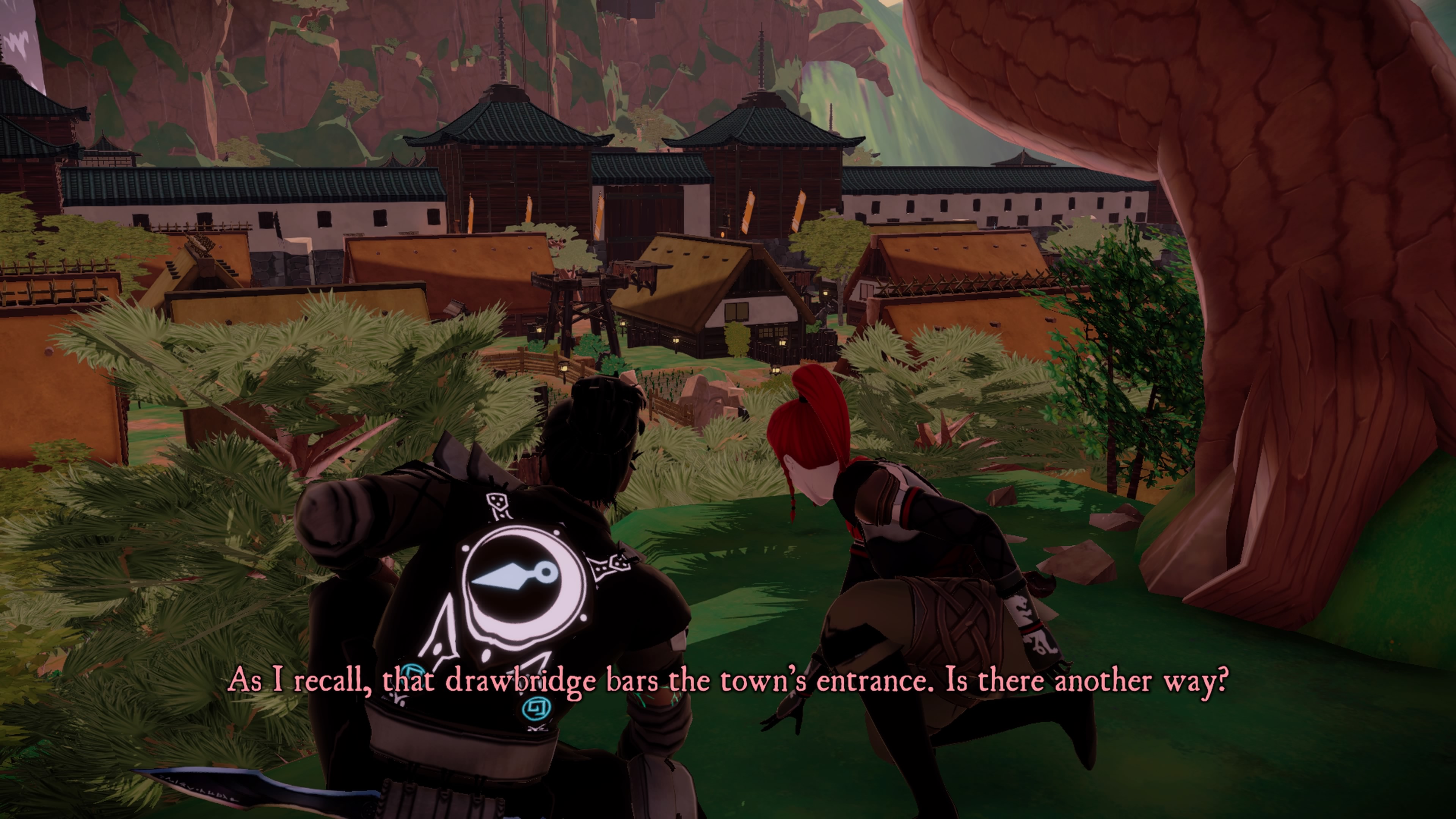
While the original Aragami had co-op, Nightfall thrives ultimately by being built around the co-op experience. With one player controlling Hyo and the other Shinobu, the game is at its most enjoyable when playing with another individual.
Coordinating and deciding if you are going to take everyone down to reach a goal or sneak through the level was a absolute blast with a partner. Even though you can play the game by yourself, I suggest finding a friend to play with when diving into this adventure.
Interestingly enough if you do not have another person to play with, PC players can play with console players. However, as usual there is no cross platform play between PlayStation and Xbox.
A major gripe that I have is that even with the base game and Nightfall, the experience is very short. The original Aragami is roughly about 6.5 hours long on average for 13 chapters. The expansion is only 4 chapters and even if the environments are bigger, it can be completed in a couple of hours.
Even in co-op between me and another person playing while making a ton of mistakes, we were able to complete the first two chapters in under an hour. Ultimately, finishing the game myself was even faster as I would find myself taking more risks to complete parts of the game.
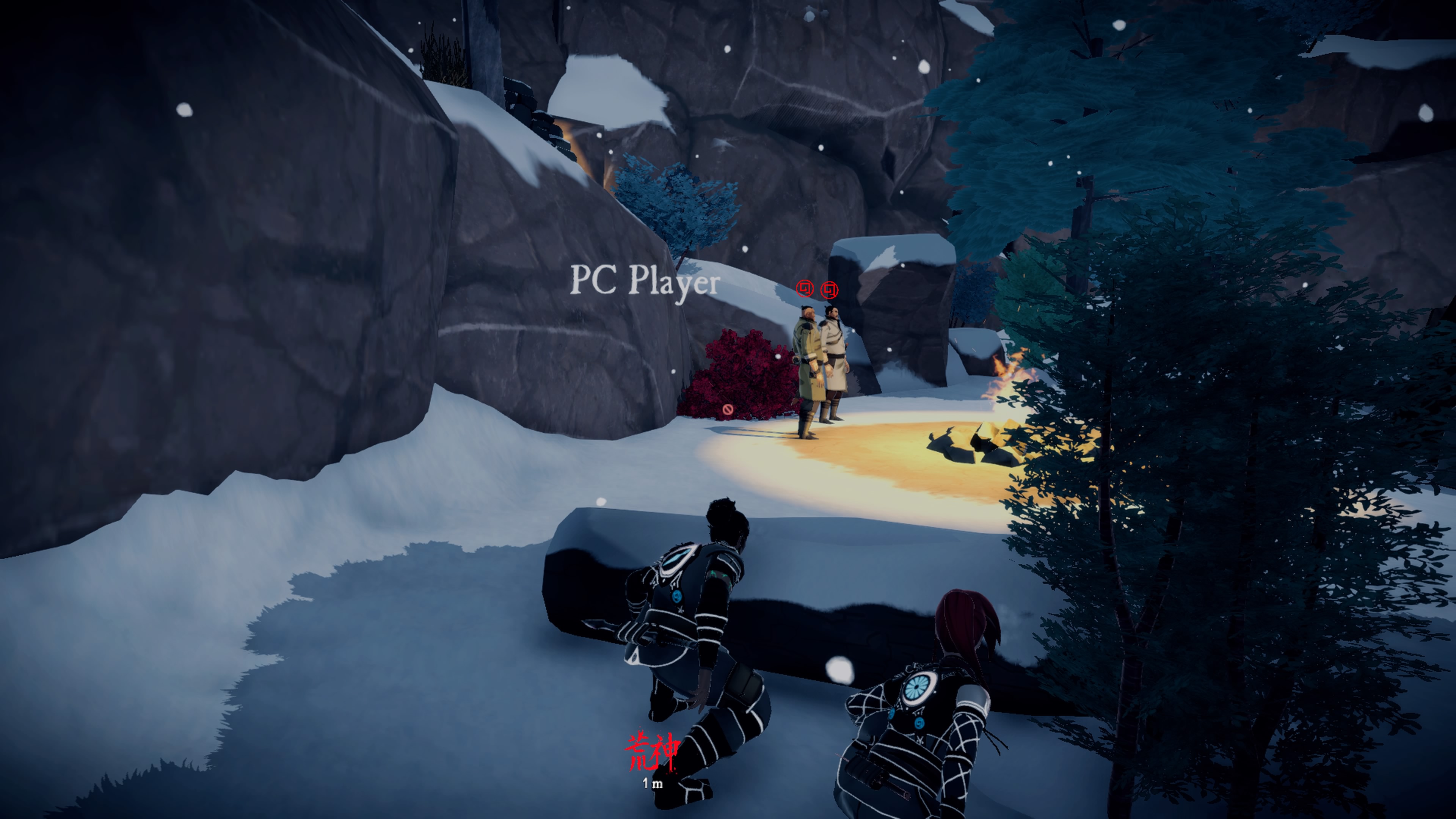
For new players of Aragami, I have to stress to play the base game first before Nightfall. Nightfall spoils the player with having all abilities unlocked, as well as the new abilities. It creates a stronger experience and makes it hard to go back to playing the base game.
Even though the events take place before Aragami, I found myself bored at times in the original and wishing I had all the extra tools that Nightfall had. It’s not to say the that Aragami is bad, it’s just Nightfall might have been better off as its own title in the series, if it was a bit longer.
This updated release fixes a lot of issues that turned players away, however it still has its shortcomings. However, with the inclusion of Nightfall, I could not help but feel torn on where to start playing. Still, overall I had a fun experience.
Rarely was there a moment where the game felt unfair. Aragami: Shadow Edition is a good time with some minor issues. For people who are missing stealth actions games reminiscent of Tenchu, this could fit the bill.
Aragami: Shadow Edition was reviewed on PS4 Pro using a review copy provided by Lince Works. You can find additional information about Niche Gamer’s review/ethics policy here.
The Verdict: 8
The Good:
- Stealth gameplay that enforces thinking and patience and is ultimately very addictive.
- Wonderful music helps really bring the game together.
- Nightfalls co-op experence and the ability to play with a PC player on consoles
The Bad:
- Ultimately both games are short
- The story of both games is weak
- Weird animations and once the art-style wears on you you notice its flaws if you inspect carefully.
